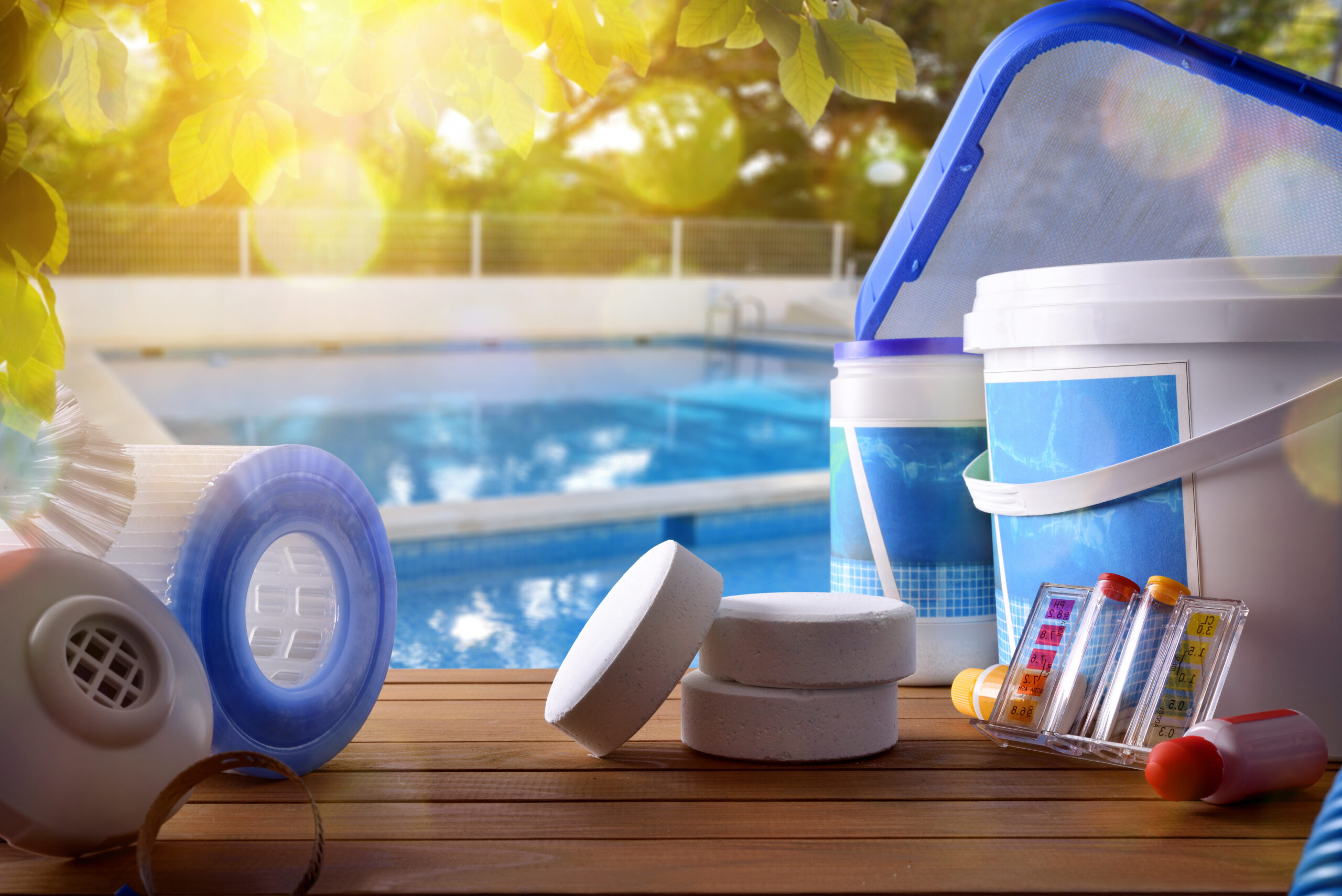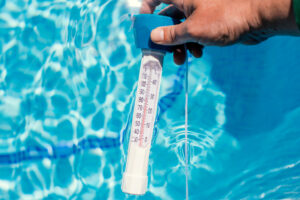Factors That Can Disrupt Pool/Spa Water Chemistry
Maintaining crystal-clear water in your swimming pool is essential for a safe and enjoyable swimming experience, and a big part of that is ensuring your pool water is properly balanced. Several factors can disrupt your pool or spa’s water chemistry, and it’s crucial to stay informed about them. Regularly testing and treating your water is vital, as is being aware of these 10 elements that can affect your pool’s chemistry.
Swimmers and Pets
It’s not just the individuals or animals themselves, but rather the products they bring with them. Things like shampoo, laundry detergent, body lotion, perfume, and sunscreen can impact your water’s chemistry when introduced into the pool. Encourage swimmers to shower before entering the water to minimize this issue. Pets can also contribute problems, particularly if they have flea and tick treatments.
Rainwater
Rain can be acidic, which may lower the pH level of your pool or spa water. Ideally, pH levels should not drop below 7.2. Low pH can be uncomfortable for swimmers and may damage pool heaters and other equipment.
Source Water
Water sourced from wells, taps, or garden hoses can often contain high levels of iron, which can lead to complications in your pool or spa.
Circulation
Constantly moving water discourages the growth of bacteria and enhances the effectiveness of your sanitizer. Proper circulation is key to maintaining clean water.
Chemicals
Certain pool chemicals may introduce minerals that contribute to calcium problems. It’s recommended that your pool or spa maintains a calcium hardness level of 200-400 PPM.
Phosphates
Phosphates can fuel algae growth, which not only consumes chlorine but can also lower its levels, affecting your water’s pH balance.
Sunlight
UV exposure and evaporation can diminish the effectiveness of pool chemicals like chlorine. Maintaining appropriate chlorine levels is crucial for effective sanitation.
Wind
Wind can carry various chemicals through the air, including fertilizers and insect sprays, which can then settle into your pool and disrupt its chemistry.
Heat
Warmer water provides an ideal environment for bacteria. Increased bacterial levels can deplete chlorine as it’s used to combat the bacteria. The optimal temperature for pool water is between 78° and 82°, while a spa should not exceed 104°. Higher temperatures also increase the likelihood of scale formation along the waterline due to high pH, alkalinity, or calcium concentration.
Dirt and Debris
Organic materials, like leaves, can create issues in your water. Regularly skimming your pool’s surface is essential to remove dirt and debris and prevent water quality problems.
Contact Pristine Pool Service & Supply




